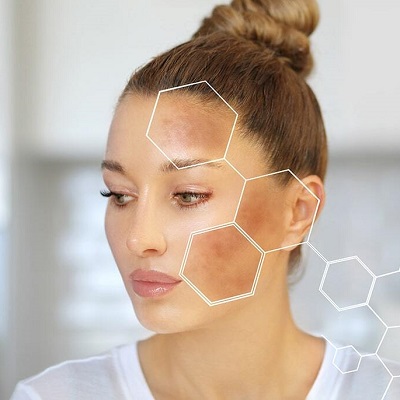Melasma is a challenging skin condition marked by dark, uneven patches primarily on the face. Many factors contribute to its development, including sun exposure, hormonal changes, and skin inflammation. For those seeking effective solutions, professional Melasma Treatment in Islamabad offers promising results to reduce pigmentation and restore a more even skin tone. However, an often overlooked but crucial element in melasma management is proper skin hydration.
In this article, we will discuss the importance of hydration in melasma treatment and share practical tips specifically tailored for residents of Islamabad, where weather and environmental factors can influence skin health.
Understanding Melasma and Why Hydration Matters
Melasma occurs when melanocytes—cells producing skin pigment—become overactive, resulting in dark spots or patches. Treatments aim to reduce pigment production and repair the skin barrier, but hydration plays an essential role in supporting these processes.
Hydrated skin has a stronger, healthier barrier, which helps prevent irritation and inflammation. Since inflammation can worsen melasma, keeping your skin moisturized can reduce the risk of flare-ups. Moreover, hydration improves the overall texture and appearance of skin, making treatment outcomes more visible and long-lasting.
The Unique Climate Challenge of Islamabad
Islamabad experiences a diverse climate, with hot summers and cold winters. Both extremes can negatively affect skin hydration:
- Hot summers: High temperatures and sun exposure increase water loss from the skin, causing dryness and sensitivity.
- Cold winters: Dry air and indoor heating strip moisture from the skin, weakening its barrier.
For melasma patients, this fluctuating climate requires extra attention to maintaining hydration consistently throughout the year.
Hydration: Internal and External Approaches
Internal Hydration
Drinking enough water is the foundation of skin hydration. Adequate fluid intake ensures your body and skin cells remain hydrated from within, promoting elasticity and cellular repair. Adults should aim for at least 8-10 glasses of water daily, but this can vary depending on activity level and climate.
Additionally, consuming water-rich foods like cucumbers, watermelon, oranges, and strawberries helps maintain hydration while providing antioxidants that protect skin from damage.
External Hydration
Using moisturizers and hydrating skincare products is crucial to prevent moisture loss from the skin surface.
- Choose the right moisturizer: For melasma-prone skin, opt for lightweight, non-comedogenic moisturizers that provide deep hydration without clogging pores.
- Ingredients to look for: Hyaluronic acid, glycerin, ceramides, and aloe vera help attract and retain moisture, strengthen the skin barrier, and soothe irritation.
- Avoid irritants: Stay away from alcohol-based or fragrance-heavy products that can dry out or inflame sensitive skin.
- Hydrating serums: Incorporate serums containing hydrating agents under your moisturizer for enhanced effects.
Consistent application of these products after cleansing helps seal in moisture and prepares your skin for melasma treatments.
How Hydration Enhances Melasma Treatment in Islamabad
When combined with professional Melasma Treatment in Islamabad, proper hydration can accelerate healing and improve results by:
- Reducing inflammation: Hydrated skin is less prone to redness and irritation that can trigger pigment production.
- Improving skin barrier function: A strong barrier prevents environmental aggressors like pollution and UV rays from worsening melasma.
- Enhancing treatment absorption: Moisturized skin absorbs topical treatments more effectively, increasing their potency.
- Promoting cell turnover: Hydration supports healthy exfoliation and regeneration, which helps fade pigmentation.
Patients who neglect hydration may experience dryness or peeling after treatment, leading to discomfort and delayed progress.
Practical Hydration Tips for Islamabad Residents
1. Monitor Your Water Intake
Keep a reusable water bottle handy and set reminders to drink water throughout the day, especially during hot weather or physical activity.
2. Use Humidifiers Indoors
During Islamabad’s dry winter months, using a humidifier can add moisture to the air, helping prevent skin dehydration.
3. Avoid Long, Hot Showers
Although tempting, hot showers can strip natural oils from your skin. Use lukewarm water and keep showers brief.
4. Apply Moisturizer on Damp Skin
After washing your face, gently pat (don’t rub) and apply moisturizer while your skin is still slightly damp to lock in hydration.
5. Protect Skin from Harsh Weather
Use physical barriers like scarves or hats during cold or windy days to minimize moisture loss.
6. Incorporate Hydrating Masks
Use hydrating sheet masks or gel-based masks once or twice a week to boost skin moisture levels.
Lifestyle Choices That Support Hydrated Skin
- Eat a balanced diet: Include foods rich in omega-3 fatty acids (like fish, flaxseeds, and walnuts) which help maintain skin’s moisture barrier.
- Limit caffeine and alcohol: Both can have a dehydrating effect on the body and skin.
- Exercise regularly: Physical activity promotes circulation, which supports skin health.
- Get adequate sleep: Sleep is essential for skin repair and moisture balance.
Avoid Common Hydration Mistakes
- Over-washing: Excessive cleansing can dry out skin and worsen melasma.
- Using harsh exfoliants: Avoid scrubs or chemical peels too frequently as they can damage the skin barrier.
- Ignoring sunscreen: Sunscreen protects from UV damage which can dehydrate and aggravate pigmentation.
When to Consult a Dermatologist
If your skin remains dry, irritated, or melasma worsens despite hydration efforts and treatment, seek professional advice. Dermatologists can recommend specialized products and adjust treatments to your skin’s needs.
Conclusion
Hydration is a critical but often underestimated factor in achieving successful and lasting results with Melasma Treatment in Islamabad. Both internal and external hydration support skin barrier health, reduce inflammation, and enhance treatment efficacy. By adopting simple hydration habits and protecting skin from Islamabad’s challenging climate, melasma patients can enjoy clearer, healthier skin for longer.
To learn more about professional melasma treatment options and personalized advice, visit Melasma Treatment in Islamabad.





Comments